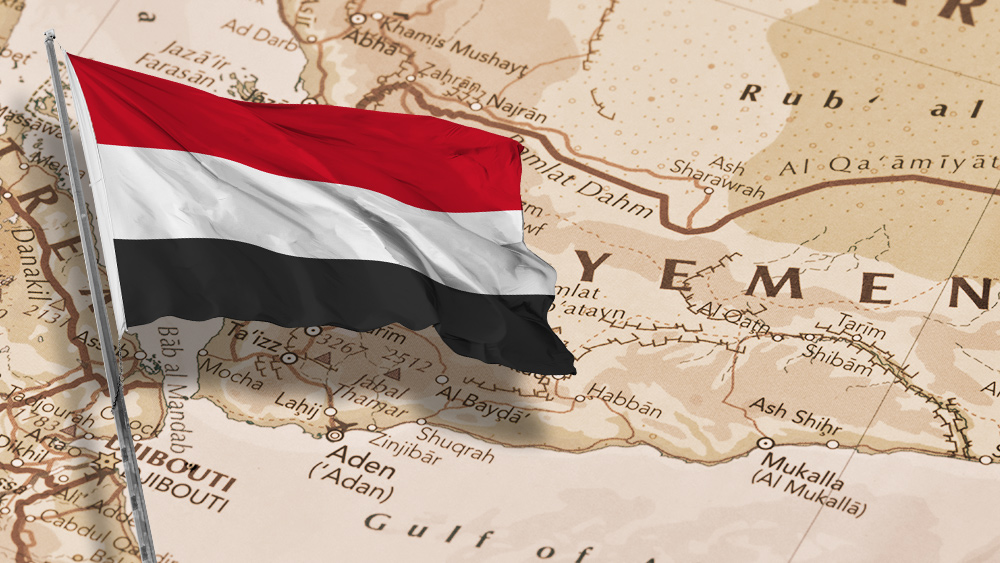
The Yemeni military warned Israeli-linked ships passing through the Red Sea not to violate the country's ban on using the waters within the forces' range to travel to the ports of the occupied Palestinian territories after it successfully targeted two ships in the past few days.
On June 15, Yemeni Armed Forces spokesman Brigadier General Yahya Saree said, "The Yemeni Armed Forces renew their warning to all companies of the consequences of dealing with the Israeli enemy and the arrival of their ships to the ports of occupied Palestine. They (the vessels) will be targeted in the area of operations of the Armed Forces," he asserted.
The warning came after the country's military launched strikes with missiles and drones on two commercial ships, the cargo ship Verbena and the bulk carrier Tutor. "The ship Verbena sinks in the Gulf of Aden after being targeted by many missiles," Saree said on Saturday. "The ship Tutor, which was targeted by a naval drone and several ballistic missiles and drones, is at risk of sinking in the coming hours." On June 19, the Liberian-flagged Greek-owned ship finally sank. (Related: Yemen's Houthis attack bulk carrier in Red Sea with suicide drone boat – first time in this conflict.)
White House national security spokesman John Kirby said on Monday that the attack killed "a crew member who hailed from the Philippines." The Philippines has yet to acknowledge the death, but the man who had been aboard the Tutor has been missing for over a week in the Red Sea.
The armed forces of Yemen's Ansarallah-led government have targeted Israeli-linked ships passing through the Red Sea near Yemen's coast since November while the ban has been rolled out since Oct. 7, as soon as Israel retaliated against Hamas and launched massive genocidal operations in Gaza. At least 37,296 Palestinians have been killed to date, most of them women and children and another 85,197 individuals have sustained injuries as a result of the war so far.
Saree added that his nation vows that their forces would keep up their operations as long as the Israeli regime sustains the war and retains a crippling siege that the regime has been simultaneously enforcing against the beleaguered enclave. "These operations are dedicated by our Yemeni armed forces to our mujahideen brothers in Gaza for their steadfastness and jihad, may God protect them and all the free people of the Palestinian people on the occasion of the blessed Eid Al-Adha. Victory is only from God," Saree added.
In retaliation, the United States and United Kingdom navy troops have been carrying out airstrikes against Yemen's armed forces and have sought to protect Israeli-linked commercial ships with their missile defenses.
Meanwhile, the Ukrainian-owned, Polish-operated MV Verbena has also been on fire since Thursday when two missiles struck it. The crew abandoned the ship on Saturday after failing to contain the blaze and were rescued by another commercial vessel, the MV Anna Meta.
As per the U.S. CENTCOM, the Iranian warship IRIN Jamaran failed to respond to the Verbana's distress call. CENTCOM claimed the Iranian ship was only 14 kilometers away when the distress signal was sent. "This continued malign and reckless behavior by the Iranian-backed Houthis [Ansarallah] threatens regional stability and endangers the lives of mariners across the Red Sea and Gulf of Aden. Centcom will continue to act with partners to hold the Houthis accountable and degrade their military capabilities," a CENTCOM statement issued on June 16 read.
U.S. intel claims a 90% decline in shipping through Red Sea due to Houthi attacks
The U.S. Defense Intelligence Agency (DIA) reported recently that container shipping through the Red Sea has declined by 90 percent from December to February because of the Houthi attacks. As much as 15 percent of the world's maritime traffic flows through that corridor.
The operations of the Iran-backed group have been reported to have impacted at least 65 countries and forced at least 29 major energy and shipping companies to alter their routes, according to the rare public assessment by the Department of Defense's intel arm. "Threats to Red Sea transits are compounding ongoing stress to global maritime shipping caused by interruptions at the Panama Canal due to drought," the DIA said.
Alternate shipping routes around Africa cost nations around 11,000 nautical miles for each journey, increasing fuel costs by approximately $1 million for each voyage.
Steve Lamar, CEO of the American Apparel and Footwear Association said: "Delays and cost increases are mounting. Although companies are exploring alternative shipping options, adverse knock-on effects continue to disrupt logistics globally. More needs to be done to ensure the safety of crews and security of cargo by eliminating existing or future threats entirely."
The Red Sea attacks have also impacted humanitarian relief efforts. Aid for Sudan and Yemen has been delayed by weeks as a result of longer routes around Africa, reports indicated.
Chaos.news contains more stories related to worldwide conflicts.
Sources for this article include:
Please contact us for more information.















